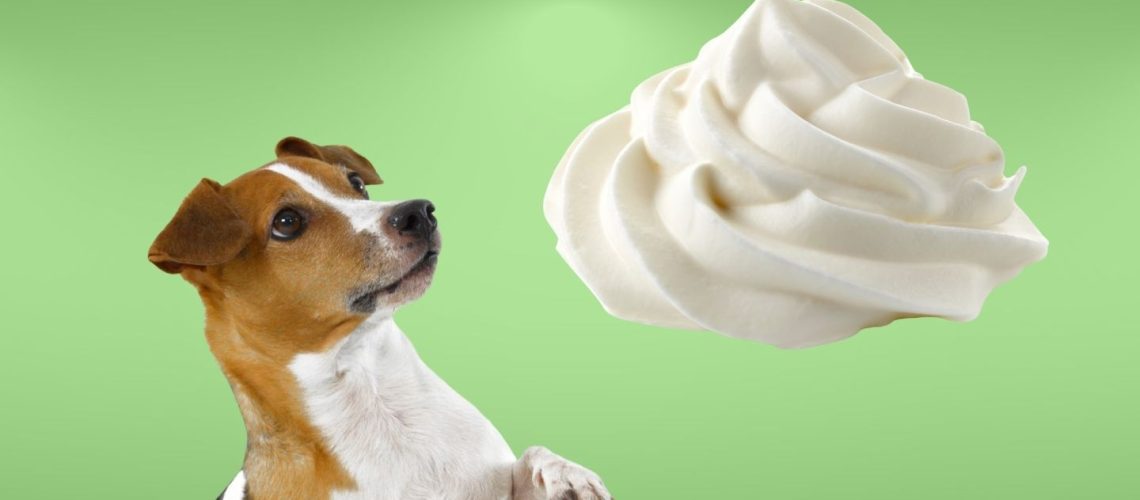Can dogs eat whipped cream? The short answer is no. Dogs should not eat whipped cream as part of their regular diet because it is very high in fat and most dogs do not tolerate the lactose present in the cream. In this article, we will discuss the reasons why whipped cream is not suitable for dogs and provide dog owners with healthier alternatives for treating their canine companions.
What is whipped cream?
Whipped cream is a dairy product made by whipping heavy cream until it becomes light and fluffy. It is often used as a topping for desserts or beverages and can be sweetened and flavored with various ingredients.
Nutritional content of whipped cream
Whipped cream contains high amounts of fat and calories, with a typical serving containing around 51 calories and 5 grams of fat. Additionally, it also contains lactose, a sugar found in milk and dairy products.
Risks of feeding whipped cream to dogs
Lactose intolerance in dogs
Many dogs are lactose intolerant, meaning they are unable to properly digest lactose. Feeding whipped cream to a lactose-intolerant dog can result in gastrointestinal problems such as bloating, diarrhea, and gas.
Symptoms of lactose intolerance
Signs of lactose intolerance in dogs include diarrhea, vomiting, gas, and stomach pain. These symptoms may occur several hours after ingesting dairy products, like whipped cream.
High fat content
The high fat content of whipped cream can lead to obesity in dogs, increasing their risk of developing health problems such as diabetes and heart disease.
Risks of obesity in dogs
Obesity can cause various health issues for dogs, including joint pain, breathing difficulties, heat intolerance, and a shorter life expectancy.
Pancreatitis in dogs
Dogs that consume high-fat foods like whipped cream are also at risk of developing pancreatitis, a painful and potentially life-threatening inflammation of the pancreas.
Sweeteners and flavorings
Xylitol toxicity in dogs
Whipped cream may contain sweeteners like xylitol, which is extremely toxic to dogs. Ingesting even small amounts of xylitol can lead to rapid insulin release in dogs, causing low blood sugar, seizures, and even death.
Artificial flavorings and their effects on dogs
Artificial flavorings found in some whipped cream products may also be harmful to dogs, potentially causing gastrointestinal upset or even allergic reactions.
Alternatives to whipped cream for dogs
Dog-friendly treats
There are many dog-friendly treats available on the market specifically designed to meet the nutritional needs of dogs. These treats are a better choice for rewarding your dog than whipped cream.
Fruits and vegetables that are safe for dogs
Some fruits and vegetables, such as apples (without seeds), bananas, carrots, and green beans, can be given to dogs as healthy treat alternatives.
Homemade dog treats
Making your own dog treats can be a fun and healthy way to reward your dog. There are many recipes available online for making homemade dog treats using dog-safe ingredients.
Tips for responsible dog treat feeding
Monitoring your dog's weight
Regularly tracking your dog's weight can help you prevent obesity and ensure they are maintaining a healthy size.
Choosing the right treat size
Make sure you are providing treats that are an appropriate size for your dog to prevent choking hazards or excessive calorie intake.
Frequency of giving treats
Avoid giving treats too frequently, as overindulging can lead to obesity and other health issues. Treats should make up no more than 10% of your dog's daily caloric intake.
Frequently asked questions
Can dogs eat ice cream?
Like whipped cream, ice cream is not recommended for dogs due to its high fat and sugar content and potential for lactose intolerance.
Can dogs eat sour cream?
Sour cream is also not recommended for dogs due to its high fat content and potential for lactose intolerance.
What human foods are safe for dogs?
Some human foods safe for dogs include lean meats, cooked eggs, apples, bananas, and cooked, plain rice.
When to contact a veterinarian
Signs of an adverse reaction to whipped cream
If your dog shows symptoms such as diarrhea, vomiting, lethargy, or seizures after consuming whipped cream, contact your veterinarian immediately.
Steps to take if your dog has consumed a large amount of whipped cream
If your dog has eaten a significant amount of whipped cream or if you suspect they have ingested xylitol or artificial flavorings, contact your veterinarian for guidance and monitor your dog closely for any signs of distress or illness.











